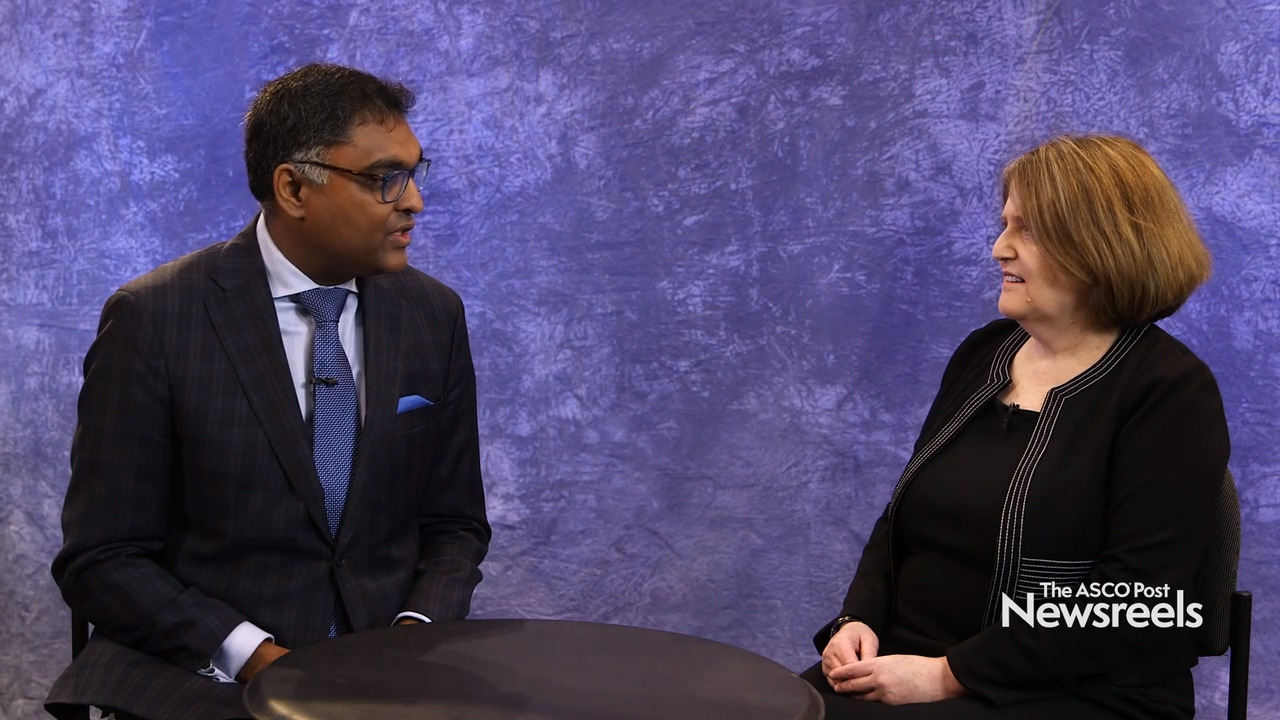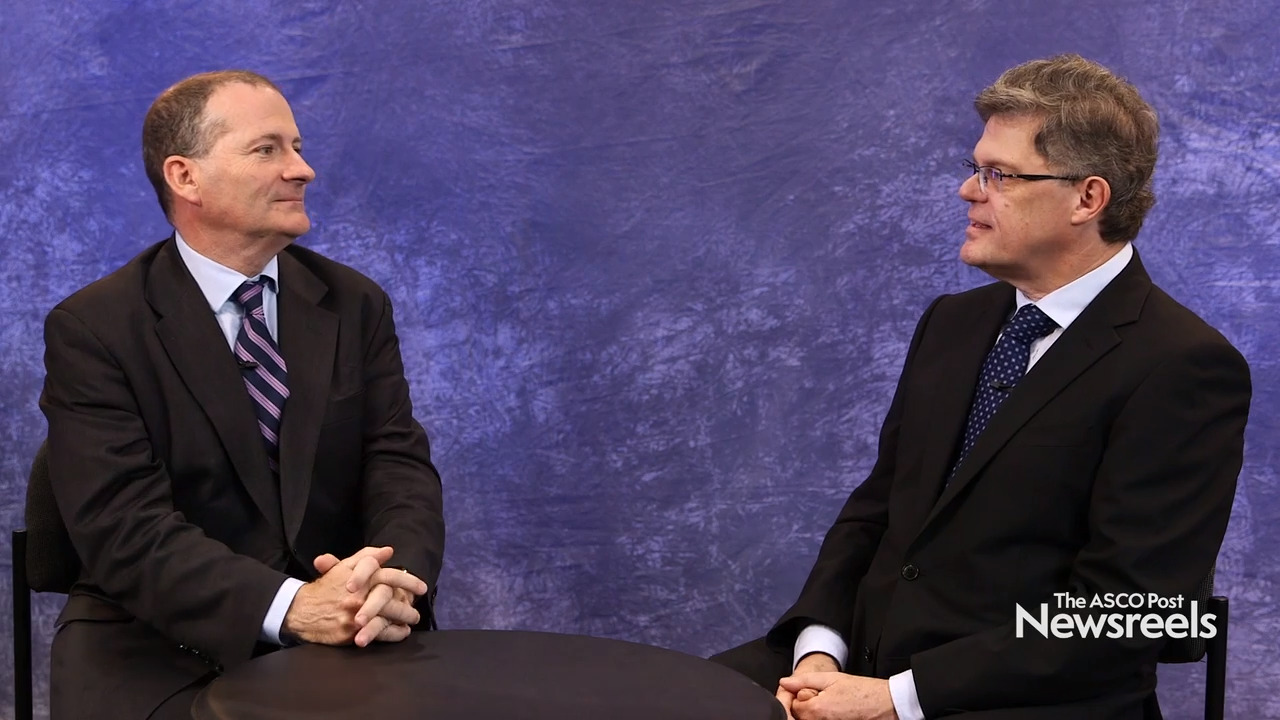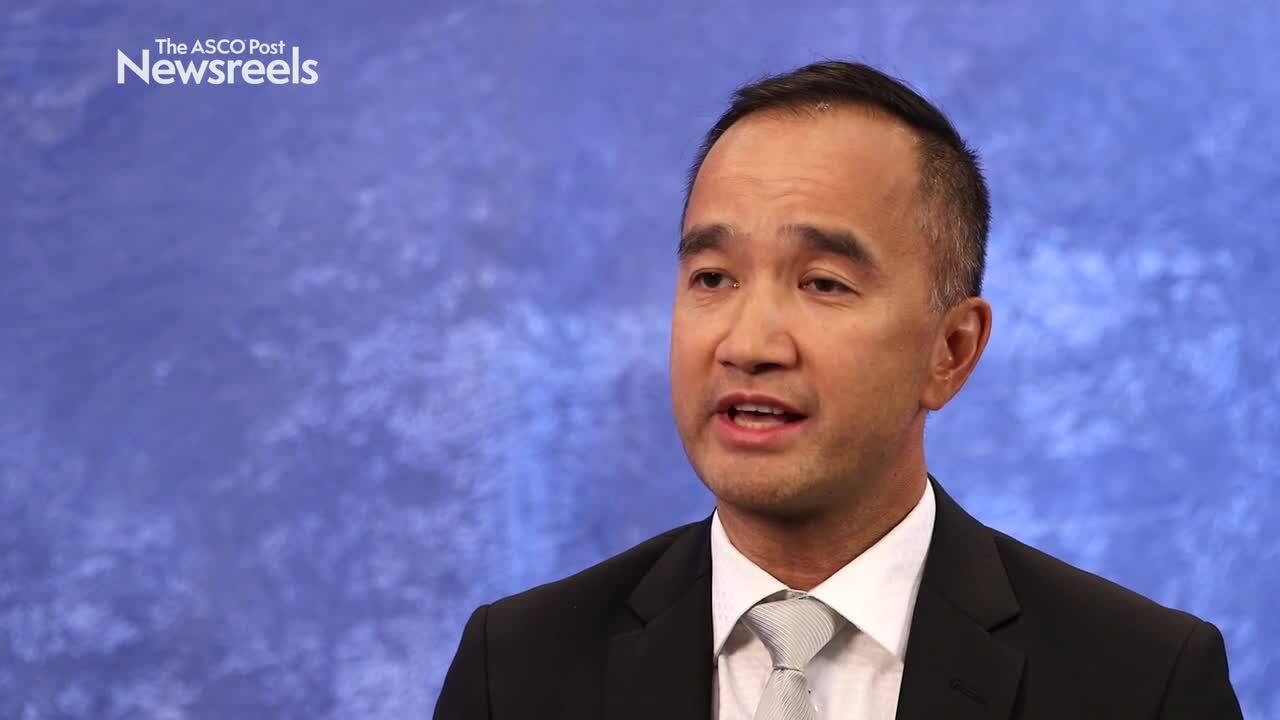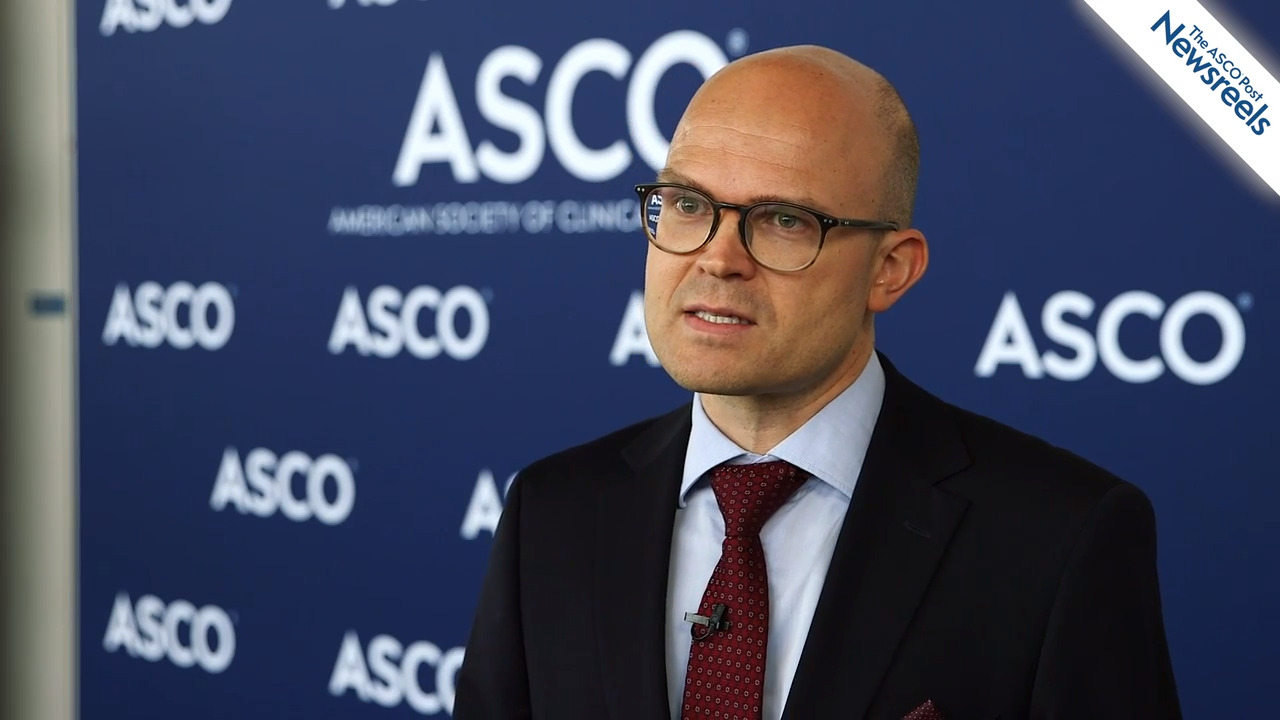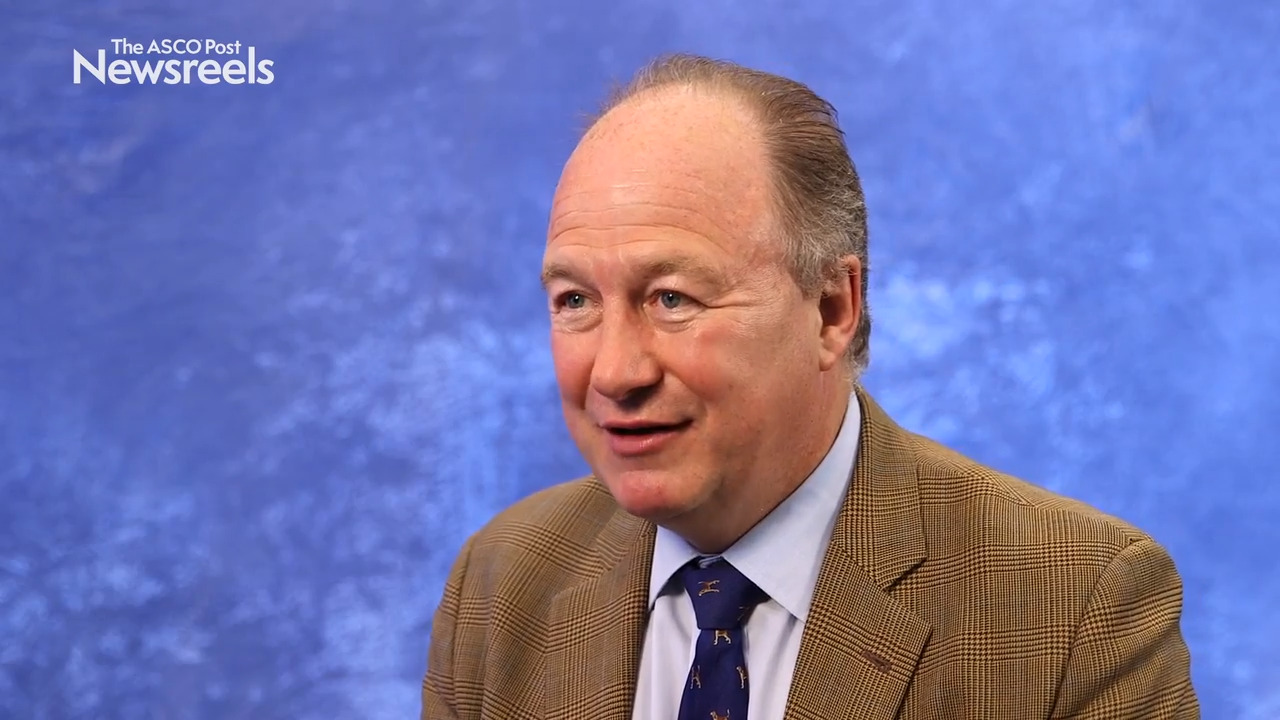Lee S. Schwartzberg, MD, FACP: 2019 Update on the ACCC Immuno-Oncology Institute: Using Immunotherapy in the Community Setting
2019 ASCO Annual Meeting
Lee S. Schwartzberg, MD, of the West Cancer Center, reports on this past year’s progress of the ACCC initiative to speed adoption of immunotherapeutics in community practices.
Alok A. Khorana, MD, of the Cleveland Clinic, and Hedy L. Kindler, MD, of The University of Chicago, discuss phase III findings on olaparib as maintenance treatment following first-line platinum-based chemotherapy in patients with metastatic pancreatic cancer and a germline BRCA mutation (Abstract LBA4).
Christopher Sweeney, MBBS, of Dana-Farber Cancer Institute, and Ian D. Davis, MBBS, PhD, of Monash University and Eastern Health, discuss the Australian and New Zealand Urogenital and Prostate Cancer Trials Group, working globally to speed clinical research in and treatment of urogenital cancers.
Kim N. Chi, MD, of BC Cancer, discusses updated results from a phase II study of cabazitaxel vs abiraterone or enzalutamide in patients with poor-prognosis metastatic castration-resistant prostate cancer (Abstract 5003).
Åsmund A. Fretland, MD, of Oslo University Hospital, discusses clinical trial findings on survival outcomes after laparoscopic vs open resection for colorectal liver metastases. The study he conducted with his team showed that the laparoscopic procedure did not jeopardize long-term survival (Abstract LBA3516).
Paul G. Richardson, MD, of Dana-Farber Cancer Institute, discusses findings from the phase III ICARIA-MM trial showing that isatuximab, pomalidomide, and low-dose dexamethasone significantly improved progression-free survival and overall response vs pomalidomide and dexamethasone (Abstract 8004).
